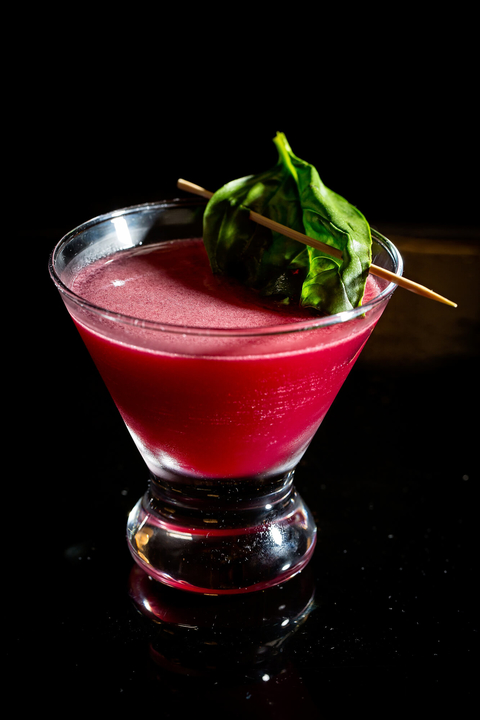There’s no denying that Chinese medicine, which has been around for thousands of years, can help heal human bodies. Tiger Fork in Washington, D.C., is taking care of its customers by offering a traditional Chinese medicine cocktail menu.
“The traditional Chinese medicine (TCM) drinks sell more than anything; it’s what we’re known for,” says beverage director Ian Fletcher. “It’s partly a curiosity thing.”
Tiger Fork offers seven TCM cocktails that aim to help guests with pain and fatigue, detoxing, boost their immune systems, and ease anxiety. One even promises to be an aphrodisiac.
Guests aren’t drinking these for their health, necessarily, Fletcher says, but more for the experience.
The cocktails have been offered on Tiger Fork’s menu since the restaurant and bar opened two years ago. Before it opened, Fletcher researched online, then consulted with a Chinese medicine practitioner who advised on ingredients. But the hardest thing with the drinks, Fletcher says, “was getting them to taste good.” Many of the ingredients are not very tasty and are often bitter, so it was important to play that down, typically with citrus.
Check this out: The Tipple Trends to Watch Through 2019
Since then, what’s changed is America’s trade relations with China, which has affected sourcing products. Tiger Fork uses U.S.-based businesses that source from China, and some products have been affected, Fletcher says. The price of Chinese honeysuckle, for example, has increased around four-fold; ginseng prices have almost doubled “and finding Chinese ginseng is essentially impossible,” he says.
“There are other ingredients—atractylodes, astragalus—that are pretty much a staple in TCM, that have now become unavailable or out of stock in some of the venues we've normally used to purchase them,” Fletcher adds.
The TCM cocktails cost $13 to $15. Some of them are actually more expensive than they need to be, Fletcher says, but he views the TCM menu as a whole and tries to balance them out. The yuzu in In the Mood for Love, for example, is very pricey (close to $90 per liter) “but we discreetly try to balance it so we’re doing OK and nobody feels robbed.” Likewise, the 8 O’clock Light Show is time-consuming to make, and it should be $3 to $5 more than it is, he says “but we make up the difference somewhere else. We’d rather make it and sell it than not because it’s too expensive.”
The margins on these drinks are also higher than Fletcher would like, “but we knew that going into it. We were shooting for 15-16 percent liquor costs but they’re closer to 20 percent, though we try to make that up somewhere else.”
The 8 O’Clock Light Show is the best seller, Fletcher says. It’s touted to help fatigue and is heavily caffeinated. “It’s the only one you can feel working,” Fletcher points out. It contains Thomas Tew Rum, blood orange juice, yuzu, cacao, kola nut, astralagus, ginseng, guarana seed and cinnamon.

Another good seller is Nathan Road, which Tiger Fork claims helps with detoxing. Its ingredients are bourbon, Angostura bitters, plum wine, lemon juice, hibiscus, calendula, mullein flower, purple basil, English violet, echinacea, stevia, sage and thyme.
Tiger Fork opened with four cocktails and then added three more. Fletcher designed each one to have a base spirit, because that’s how people order their drinks, he says.
To maintain interest and curiosity in the drinks, Tiger Fork features display jars of the ingredients all over the restaurant. “We have them organized, so if you’re paying attention, you could see every single ingredient for each drink,” Fletcher says.
Check this out: Succeeding with Schochu
To make the assembly of each drink easier, some of the ingredients are batched up, so bartenders only have to pull three or four bottles per drink. For example, for the 8 O’Clock Light Show, Fletcher makes a syrup containing white ginseng, astragalus, kola nut, roasted cacao, guarana seed and cinnamon. It’s sweetened with raw sugar and cooked for hours, then left to infuse for two to three days.
At the end of the day, Fletcher loves his TCM cocktail menu, and says the process of creating it was fun. “But keeping track of the ingredients is hard—ordering that stuff and staying on top of it.”
Click here to visit the Tiger Fork website.
